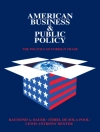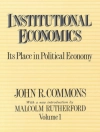The European Union after Brexit addresses the forces and mechanisms at work during an unprecedented transformation of the European polity. How will the EU operate without one of its key diplomatic and international military partners? What will happen to its priorities, internal balance(s) of power and legislation without the reliably liberal and Eurosceptic United Kingdom? In general, what happens when an ‚ever closer union‘ founded on a virtuous circle of economic, social, and political integration is called into question?
Though this volume is largely positive about the future of the EU after Brexit, it suggests that the process of European integration has gone into reverse, with Brexit coming amidst a series of developments that have disrupted the optimistic trajectory of integration. Covering topics such as international trade, freedom of movement, and security relations, this book answers a need for a one-stop source of strong research-based discussions of Brexit.
Inhaltsverzeichnis
Introduction – Janet Laible and Scott L. Greer
1 A cautionary tale: ‘Brexit’, economic citizenship, and the political perils of neoliberalism – Mark I. Vail
2 Subtraction by subtraction? Brexit and its impact on the common European financial space – Gregory W. Fuller
3 Brexit and the Single Market – Michelle Egan
4 Social Europe after Brexit – Scott L. Greer
5 European citizenship and free movement after Brexit – Willem Maas
6 The EU legal order without the UK: A pity to lose the contribution? – Jessica Guth
7 The East-West divide: Obstacles to European integration – Kristin Makszin
8 Networks after Brexit – Scott L. Greer and Olga Löblová
9 European Union trade policy in the wake of the Brexit vote – Holly Jarman
10 A stronger European Union? The unexpected security consequences of Brexit – Federiga Bindi
Conclusion – The EU after Brexit: hard or soft? – Vivien Schmidt
Über den Autor
Scott L. Greer is a lecturer in Public Policy at University College London and an affiliate of the Constitution Unit












